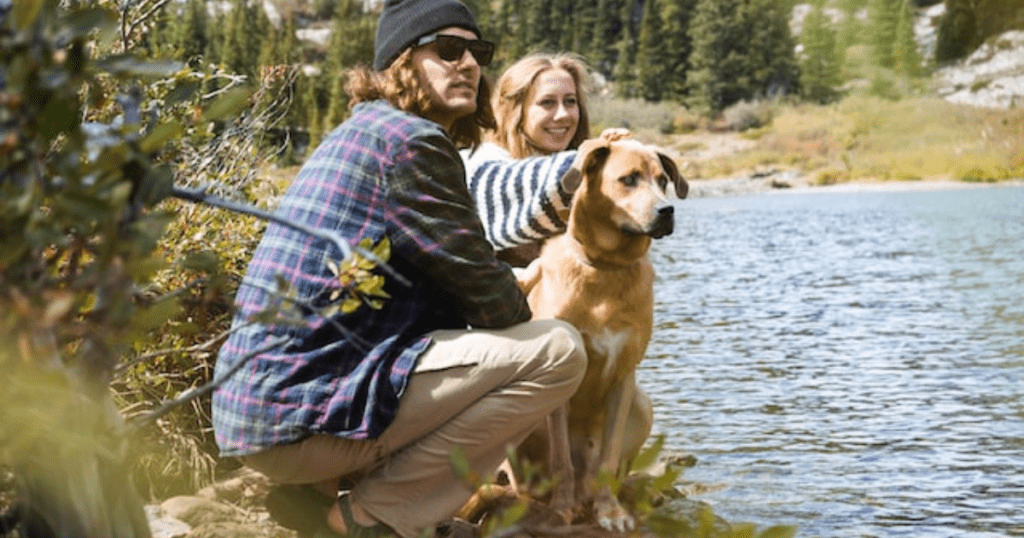Menu
Home » The Family Dog: Who Should Get to Keep Him?
The Family Dog: Who Should Get to Keep Him?
Have Questions? Call us Today at +1 209 690 7502

When a family decides to part ways, it can be a difficult time for everyone involved, especially the beloved family pet. Pets are more than just animals; they are cherished family members. When a family breaks apart, deciding who gets to keep the family dog can be a difficult and emotional decision for everyone involved. In this blog post, we will discuss the best way to decide who should get the family dog when a family breaks apart.
The person who feeds him
It’s no secret that when it comes to who should keep the family pet, the person who feeds it is a significant factor. A full stomach is the first step to a healthy, happy pet. It is essential to choose someone who can consistently provide food for the pet and who understands the importance of providing proper nutrition. Pets need to be fed at consistent times and with the right foods for their particular needs. The person who feeds them must also be aware of any dietary restrictions the pet may have due to age or other health concerns. Ultimately, the person who feeds the pet must be committed to providing them with a healthy diet and a loving home.
The person who walks with him
One of the most important questions to consider when deciding who should keep the family dog after a divorce, marriage, or relationship ends is who will take care of the pup’s exercise needs? Walking a pet is essential for keeping them healthy, but it can also be a source of joy for both the pet and the person. If one partner was primarily responsible for walking the dog before the relationship ended, then it may make sense for that person to continue in that role.
It is also essential to consider the impact of divorce, marriage, or dating on family dynamics. In some cases, it might be best for the dog if they are allowed to spend time with both people. For example, if the children live with one parent, they may want to maintain a connection with their pet by taking it on walks. This can also be beneficial for the parent as it will give them a break from their duties and allow them some quality time with their pet.
Regardless of who walks the pet, it is essential to take this responsibility seriously. Taking pets on regular walks helps them stay healthy and happy, while also providing an opportunity for human-animal bonding. It can be an excellent way to remember all of the special times spent with beloved pets.
The person who takes him to the vet
Ensuring your family pet is adequately cared for is a vital responsibility that requires commitment and dedication. Taking your furry friend to the vet for regular checkups, vaccinations, and any other necessary medical care is essential for his health and well-being. When considering who should care for the family dog, it’s necessary to consider who will be taking it to the vet.
Whoever is taking him to the vet must be consistent and willing to ensure that the dog receives the best possible care. Regular vet visits can be costly and time-consuming, so if one person is shouldering all of the responsibility, they are likely to be the one who should keep the dog. It’s also essential that the person taking him to the vet understands the importance of proper care and is not simply doing so out of obligation or convenience.
When it comes to who should keep the family pet, it’s essential to consider who will be taking it to the vet. Whoever is committed to ensuring he receives all his necessary medical care will likely be the one who will ultimately keep him.
The person who loves him unconditionally
The family dog is an essential member of the household, so deciding who should get to keep him can be a difficult decision. For many families, the person who loves their pet unconditionally will be the one who gets to keep them. This doesn’t necessarily mean the person who has the most time for him or provides the most attention; it could be the person who understands that even though there may be disagreements within the family, their pet will remain unconditionally loved by all.
Pets provide emotional support to their owners, and it’s important to remember that this bond goes beyond simply providing food and shelter. The person who loves the family dog unconditionally will recognise this bond and understand that loving and caring for the pet means more than just taking them for a walk or giving them a treat. They will be able to provide them with love and attention, even when they’re not feeling particularly well or when they’re feeling down.
In a family setting, it can be easy to overlook the fact that each family member may have distinct needs and preferences. It’s essential to consider how everyone in the family feels about the pet, as each individual will have a different opinion on who should keep it. Ultimately, though, the person who loves the pet unconditionally may be the best choice for keeping the family dog. This person will be able to provide them with the love and attention they need, keeping them happy and healthy for years to come.
Conclusion
Deciding who should keep the family dog in the event of a divorce or separation can be a challenging decision. However, when it comes down to it, the person who has shown the most love and dedication to the pet should ultimately be the one to keep them. Whether it’s the person who feeds them, walks them, takes them to the vet, or loves them unconditionally, the decision should be made in the best interest of the pet and their overall well-being. If you need further guidance or advice in this situation, don’t hesitate to reach out to us for assistance. Pets can bring joy and stability to any family, and we hope that your family will be able to make a decision that respects the well-being of both parties and the pet.
Bradley Prouting
Brad Prouting started helping Men with their relationships and Marriage troubles for over 4 years now. After realizing the Men in the most pain were those facing divorce, Brad and his team decided to solely focus on helping Men save their marriage.
Recent Posts
Overcoming Relationship Challenges
June 25, 2024
Conflict Resolution
May 31, 2024
Rebuilding After Infidelity
May 31, 2024
Tips for Healthy Technology Use in Relationships
May 31, 2024
Long-Distance Relationship Guidance
May 21, 2024
Recent Categories
Archives Post
Related Posts

Choosing a Marital Expert
Choosing a relationship expert who can guide you through personal issues, couple conflicts, or even the
Bradley Prouting
June 26, 2024

Overcoming Relationship Challenges
Overcoming relationship challenges requires resilience, empathy, and a willingness to grow together. In every relationship, whether
Bradley Prouting
June 25, 2024

Conflict Resolution
At Odyssey, we recognise that conflict is a natural part of any relationship, be it personal
Bradley Prouting
May 31, 2024



